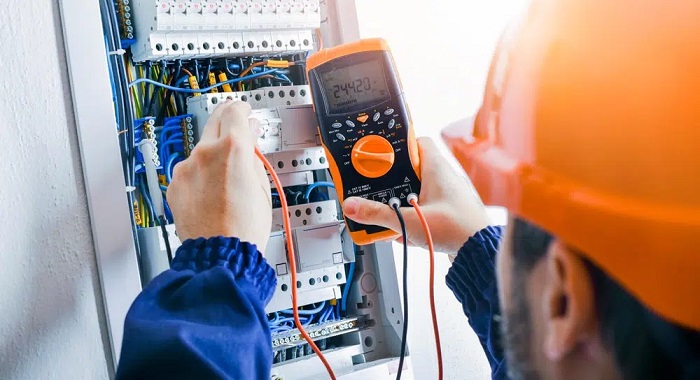
When it comes to electrical work in your home, you may be wondering if you really need to call out a professional electrician or if you can just DIY it yourself.
After all, some electrical tasks like changing a lightbulb or installing a new light fixture may seem quite straightforward. However, attempting electrical work without proper training and expertise can potentially lead to injuries or damage, and could even put your life at risk.
So how do you know if you need to hire an electrician? This comprehensive guide covers all the key considerations to help homeowners determine if and when professional electrical services are essential. Read on for practical advice and safety tips. And if in doubt, visit the Carter Electrical website for more advice.
When You Definitely Need an Electrician
There are certain electrical projects and issues around your home that unequivocally require hiring a certified electrician. Attempting these yourself is extremely dangerous and simply not worth the risk.
Installations and Upgrades
-
New circuits or wiring – Installing new wiring and electrical circuits requires permits and professional expertise to ensure correct materials and connections to avoid fire and shock hazards.
-
Service panel upgrades – Upgrading your main electrical service panel must be done by an electrician to safely tie into the main power supply and rewire your home’s circuits accordingly.
-
New electrical appliances/devices – Hardwiring appliances like air conditioning units, security cameras, heated towel rails, EV chargers etc into your home’s electrical system should be left to the professionals.
Repairs
-
Power surges/overloads – If certain circuits repetitively overload or you have frequent power surges, get an electrician to diagnose the issue and recommend solutions.
-
Faulty wiring – Buzzing, overheating or flickering lights; discoloured wires; burning smells – these all indicate faulty wiring that’s unsafe and needs professional repair.
-
Lightning strikes – Lightning strikes can cause severe damage to electrical systems – so if your home takes a hit, immediately shutdown the power and call an electrician.
-
Short circuits/blown fuses – Shorts and blown fuses suggest an underlying problem in your electricals – trying to just replace them yourself repeatedly will not solve the issue.
-
Moisture/water damage – Exposure to liquid/moisture can severely damage electrical systems and pose a shock hazard. An electrician needs to thoroughly inspect and repair any affected wiring or parts.
-
Pest damage – Rodents and pests chewing through wires can lead to damaged insulation and wiring issues that need proper repair to prevent further problems.
-
After a fire/flood – Fires and floods often cause extensive damage to electrical systems that require a professional inspection, repairs and restoration to restore safe functionality.
Electrical Work DIYers Should Avoid
Some electrical projects may seem doable but should still be avoided by amateur DIYers without electrical training and licensure from qualified authorities. Safety should be the number one priority with any electrical work.
Tricky Installs and Upgrades
Be wary of taking on complex installations if you’re not 100% certain of the safety procedures and electrical standards involved.
-
Hot tubs/spas – Improper wiring of hot tubs can lead to electric shock drowning. Leave it to the professionals.
-
Pools/fountains – Likewise, pool and fountain installations require following strict safety guidelines to avoid electrocution risks from mixing water and electricity.
-
Emergency/backup power – Generating emergency power from solar panels/generators and integrating backup battery systems into your home’s wiring requires professional expertise.
-
EV chargers – Installing EV chargers also involves knowing special safety standards to enable transferring high-voltage power safely.
-
Smart home systems – And improperly connecting smart home systems can lead to overloaded circuits or fire risks without the proper electrical capacity and safety devices.
Tricky Diagnosis and Repairs
Certain electrical issues also require nuanced troubleshooting and safety know-how to properly diagnose and fix:
-
Intermittent faults – If lights randomly turn off but then start working normally again, this likely indicates a loose wiring connection that needs troubleshooting.
-
Unknown tripped breaker reasons – If you can’t identify what appliance or action is repeatedly tripping a breaker, an electrician can help uncover the root issue.
-
Main power supply issues – Any suspected issues with your main power lines and supply system should be addressed only by your utility provider and licensed electricians.
-
Aluminium wiring issues – Diagnosing and rectifying aluminium wiring issues is especially tricky and best left to electrical pros.
Signs It’s Time to Call an Electrician
Here are key signs that something may be wrong with your home’s electrical system and it’s time to call in a professional:
- Frequent tripping of circuit breakers
- Power surges and overloaded circuits
- Unusually high energy bills
- Cracked/damaged switches, sockets or other parts
- Tingling sensations from certain appliances/fixtures
- Buzzing, discoloured or warm wiring
- Burning smells from sockets or appliances
- Flickering or dimming lights
- GFCI/RCD outlets that won’t reset
- Sparks visible from outlets/cords
- Blackened/melted plugs and cords
Don’t ignore these warning signs or attempt makeshift solutions yourself. Schedule certified electricians to thoroughly inspect your electrical systems and fix any issues properly and safely.
Key Reasons to Hire Electricians
Beyond just safety, partnering with qualified, licensed electricians for your home’s electrical needs comes with many additional benefits:
Expertise and Efficiency
With extensive training and hands-on experience, electricians can quickly and accurately assess issues and implement solutions – often faster than a DIYer trying to troubleshoot problems alone.
Moreover, leveraging local expertise can streamline the process for homeowners facing electrical challenges. A trusted electrician provides comprehensive services, including surge protection installations and emergency repairs, ensuring safety and efficiency. This approach not only addresses immediate issues but also offers preventive maintenance to avoid future problems, such as power surges or faulty wiring. By choosing professionals with specialized knowledge, residents can achieve long-term reliability in their electrical systems, reducing the risks associated with DIY attempts and enhancing overall home safety.
Quality Workmanship
Electricians adhere to strict industry standards and best practices centred around safety, compliance and reliability. This ensures high-quality electrical work optimally suited for your home’s specific needs.
Access to Tools/Technology
Electricians have specialised equipment, materials and test instruments allowing them to correctly diagnose problems and execute fixes that homeowners won’t have on hand.
Licensing and Insurance
Reputable electricians have requisite licenses and liability insurance protecting homeowners in case of injuries or damages that may accidentally occur.
Warranties/Guarantees
Many electricians provide warranties and guarantees on parts and labor, providing peace of mind that their work will actually last. DIY repairs often need redoing much sooner.
Enhanced Functionality
Beyond just repairs, partnering with an electrician allows incorporating enhanced functionality into your home through latest energy efficient technologies and smart systems.
Compliance and Certifications
Electricians ensure all wiring and repairs meet the required safety and performance standards mandated by law and utility companies.
Property Value
Improving your home’s electrical capacity, reliability and energy efficiency with an electrician also boosts your overall property resale value.
Questions to Ask Before Hiring an Electrician
Once you’ve determined that you need to hire a professional electrician for your residential or commercial electrical needs, ask the following questions to choose the best service provider:
- Are you licensed and insured?
- How long have you been an electrician?
- Do you have experience with my type of requested work?
- Can you provide references from past satisfied customers?
- Do you provide detailed written quotes before starting work?
- What are your rates and payment terms?
- What kinds of warranties/guarantees do you offer?
- Will you secure all required permits before starting?
- Do you adhere to the latest UK wiring regulations and standards?
- Do you tidy up the workplace after completing the job?
Reputable electricians should readily provide documentation of up-to-date qualifications, licenses and insurance policies. Comparing detailed quotes from multiple electricians helps identify the best value service tailored to your specific job requirements and budgetary needs.
Maintaining Electrical Safety
Beyond just hiring electricians for major installations and repairs, some key tips for maintaining ongoing safety within your home’s electrical system include:
-
Use ground fault circuit interrupters (GFCIs) – Install GFCIs to prevent electrocution accidents near wet areas like kitchens, bathrooms and outdoors. Test them monthly.
-
Label all circuits clearly – Create a detailed electrical panel labelling system so you can quickly shut off the right breakers in case of an emergency.
-
Inspect cords and plugs frequently – Replace old and damaged extension cords, power strips and plugs that pose overheating and fire risks from worn insulation and loose parts.
-
Keep air vents clear – Ensure air vents around your electrical panel, appliances and devices aren’t obstructed to prevent risky overheating issues.
-
Consider electrical system inspections – Some electricians provide full in-depth electrical safety inspections on a proactive basis to identify and fix smaller issues before they become huge problems.
-
Watch DIY limits – Exercise caution with DIY electrical work – only take on simple basic tasks within your skill expertise using proper tools and gear to avoid hazards.
-
Learn more electrical tips/news – Review electrical safety guidance from trusted resources like Carter Electrical to stay informed.
Following basic safety precautions and hiring professional electricians at the first signs of any issues can help homeowners prevent electrical fires, accidents and power disruptions. Don’t take electrical risks – make safety the priority for your home and family.


